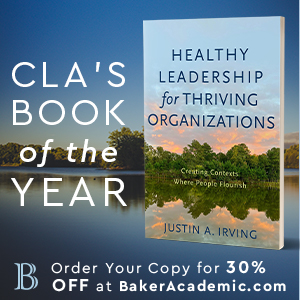
The Importance of Strategic Planning By Dr. Al Hearne II

Strategic Planning from a Steward Leader Perspective
Today’s blog is the first in a series that will delve into the importance of strategic planning in all areas of the steward leader’s life. This blog explains the importance of strategic planning and describes a six-step strategic planning process. Future blogs will cover the importance of strategic planning in a steward’s relationship with God, family, career, and ministry.
Steward Theology
Paul’s command to the Romans lays the foundation for the importance of strategic planning in all areas of the steward leader’s life:
I appeal to you therefore, brothers, by the mercies of God, to present your bodies as a living sacrifice, holy and acceptable to God, which is your spiritual worship. Do not be conformed to this world, but be transformed by the renewal of your mind, that by testing you may discern what is the will of God, what is good and acceptable and perfect
Romans 12:1-2, ESV
Through the lens of steward theology, we see that Paul commands believers to surrender to God as a continual living sacrifice. This command to be a living sacrifice encompasses the daily life that we all live, moment by moment, day by day, as time continues marching forward. This surrender is required to discern God’s good, acceptable, and perfect will. Notice that surrender never ends; the steward’s life is to be a continual, living sacrifice.
According to steward theology, everyone must decide how to live daily, either as an owner under the bondage of ownership and control or as God’s steward with freedom in Christ. One’s beliefs regarding ownership determine the difference between living with freedom in Christ or under the bondage of ownership and control. God’s stewards are those who wholeheartedly surrender their lives and follow Jesus; they do not lay claim to anything for personal gain but instead acknowledge all of creation is under God’s sovereignty, striving to align themselves with God’s ultimate intentions for the future. Stewards recognize that God is the owner, receiving full ownership rights, that they are responsible for everything God has entrusted to their purview, and that one day, they will have to give an accounting to God for how they managed their responsibilities (Rodin, 2021).
We’re Not Owners
As God’s stewards, we cannot think like owners; we cannot think, “[fill in the blank] will never happen to me.” Instead, we must prepare ahead of time to fulfill our responsibilities, complete our duties, and give God an accounting of our management.
Sometimes, life smacks us right in the face, and we find ourselves in the midst of [fill in the blank]. Often, such circumstances happen due to the decisions, or lack thereof, made by others and are beyond our control. As stewards, we cannot be unprepared and think like an owner; [fill in the blank] was not supposed to happen. Instead, we must take on this new scenario and add to our already full plates of responsibilities. Strategic planning is vital in all areas of life so that when [fill in the blank] happens, we are ready to face the new calling that God has squarely placed before us.
A Broader Perspective
Strategic planning is widely recognized as a vital component to ensure success in all areas of life, yet it rarely receives the time and effort required to provide this success outside of the work world. At its core, strategic planning is about intentionality, the commitment to carrying out an act or actions to create success in the future. It aims to see a successful transition from the present “state of being” to a new “state of being” sometime in the future. It is about honesty and transparency here in the present to help ensure success at some unknown point in the future.
Planning ensures growth, development, and success within an organization, family, or relationship. It involves identifying and developing long-term strategies and processes and harnessing talents to achieve strategic goals. Strategic planning encompasses a broad scope of responsibilities, aiming to position future success by addressing potential environmental changes, challenges, and opportunities. This planning is essential for ensuring continuity, minimizing disruptions, and maintaining stability over time. Strategic planning is, therefore, a critical practice in all areas of leadership, ensuring the sustainability of everything entrusted to the steward leader’s care. Many leaders neglect strategic planning outside of work due to a lack of understanding of its value to the family and relationships.
God has entrusted stewards with the responsibility to lead their organization, family, and personal relationships. One aspect involves preparing beforehand to act when the unexpected occurs. Another part consists of preparing for future “states of being” before they arrive.
This process does not have to be complicated and drawn. It just requires intention, transparency, and dedication of time. It is accomplished in six flexible phases and easily adjusted according to the purpose of the strategic plan.
Phase I. Purpose
Create, revise, or review the mission, vision, and core values. This step sets the tone and direction for all subsequent planning activities. The mission statement clarifies the entity’s purpose, defining why it exists and what it seeks to achieve in the short term. The vision paints a picture of the future the entity aims to create, one that inspires and motivates. Core values are the guiding principles that dictate behavior and action within the entity, serving as a compass for how it navigates decisions and interactions. These elements form the foundation for all strategic goals and action plans.
Phase II. SWOT
Conduct a SWOT analysis, identifying strengths, weaknesses, opportunities, and threats. The SWOT analysis lays the groundwork for informed strategic goal development. It requires thoroughly examining the surrounding internal and external environments. On the one hand, identifying strengths highlights the unique assets and capabilities to leverage in achieving strategic goals. On the other hand, recognizing weaknesses exposes the areas that require improvement or pose potential risks to success. Opportunities are external factors or trends to capitalize on and enhance position.
Finally, identifying threats is crucial for anticipating and mitigating external challenges that could impede progress. A SWOT analysis must provide a balanced view of what an entity is good at, where it can improve, the prospects it can pursue, and the external challenges it must navigate. This comprehensive understanding is essential for developing strategies that are realistic, focused, and aligned with the capacity to execute them, thereby setting the stage for achieving long-term success.
Phase III. Goals
Create and write specific strategic goals based on the SWOT analysis. Goals are directly informed by the insights gained from the SWOT analysis. They aim to propel momentum forward by leveraging identified strengths and opportunities, capitalizing on advantages and favorable external conditions. Strategic goals address the weaknesses and counter the threats, aiming to fortify against potential challenges. Writing out these goals is crucial for success because this step transforms the abstract insights of the SWOT analysis into actionable strategic goals to guide efforts and resources, allowing for an agreed-upon path to achieving success.
Phase IV. Action Plan
Develop an action plan for each goal by determining actionable steps, assigning responsibilities, and setting a clear timeline for achievement. Each component requires thoughtful consideration of the capabilities and capacities, ensuring the plans are ambitious and achievable. Developing an action plan for each goal ensures a structured approach to execution. This step clarifies the path forward and facilitates allocating resources and prioritizing tasks, ensuring that efforts are focused and coordinated toward achieving the strategic goal.
Phase V. Implementation
Execute action plans with disciplined implementation, active management of resources, and continuous engagement. This phase requires adaptability and responsiveness to the practical challenges of bringing strategies to life. Effective execution requires clear communication, strong leadership, and a commitment to established timelines and responsibilities. This step is critical to the success of the strategic planning process, as it directly influences the entity’s ability to achieve its goals and realize its vision.
Phase VI. Monitor and Adapt
Monitor and evaluate progress, making course corrections. Monitoring involves regularly reviewing the performance against the benchmarks and timelines in the action plans. Evaluation goes further by analyzing the effectiveness of the action plan and identifying successes, challenges, and deviations from the expected outcomes. This continuous loop of monitoring and evaluation is vital for recognizing when adjustments are needed. Course corrections involve tweaking strategies, reallocating resources, or redefining goals to align with current realities.
Whole Life Application
By engaging in strategic planning in all areas of life, steward leaders prepare to respond to the unforeseen and proactively shape their lives according to God’s good, acceptable, and perfect will. Such engagement safeguards the future of their families, organizations, and ministries. It also honors God by being ready to explain their management. The future posts in this series will address the importance of strategic planning in a steward’s relationship with God, offering practical examples and addressing everyday challenges.
Reference:
- Rodin, R. S. (2021). Set free to lead – Your guide to discovering the abundant life of a steward leader. Kingdom Life Publishing.
####
Dr. Al Hearne II is the superintendent of Redwood Christian Schools, the Center for Steward Leader Studies president, and an adjunct professor for Columbia International University. He holds a Master’s of Divinity from Fuller Theological Seminary and a Ph.D. in Educational Leadership from Columbia International University. Most importantly, he is Megan’s husband and the father of Oscar, Stephen, and Elliot!

Join us in Jacksonville, Florida, for the Premier Equipping Conference for Christian Nonprofit Professionals!
REGISTER TODAY!
And Be Sure to Check out the Outcomes Conference Book of the Year!


What is Christian Leadership Alliance?
Christian Leadership Alliance equips and unites leaders to transform the world for Christ. We are the leaders of Christ-centered organizations who are dedicated to faithful stewardship for greater kingdom impact.
Sign up for FREE blog updates.
Upcoming Events
Check back later!


